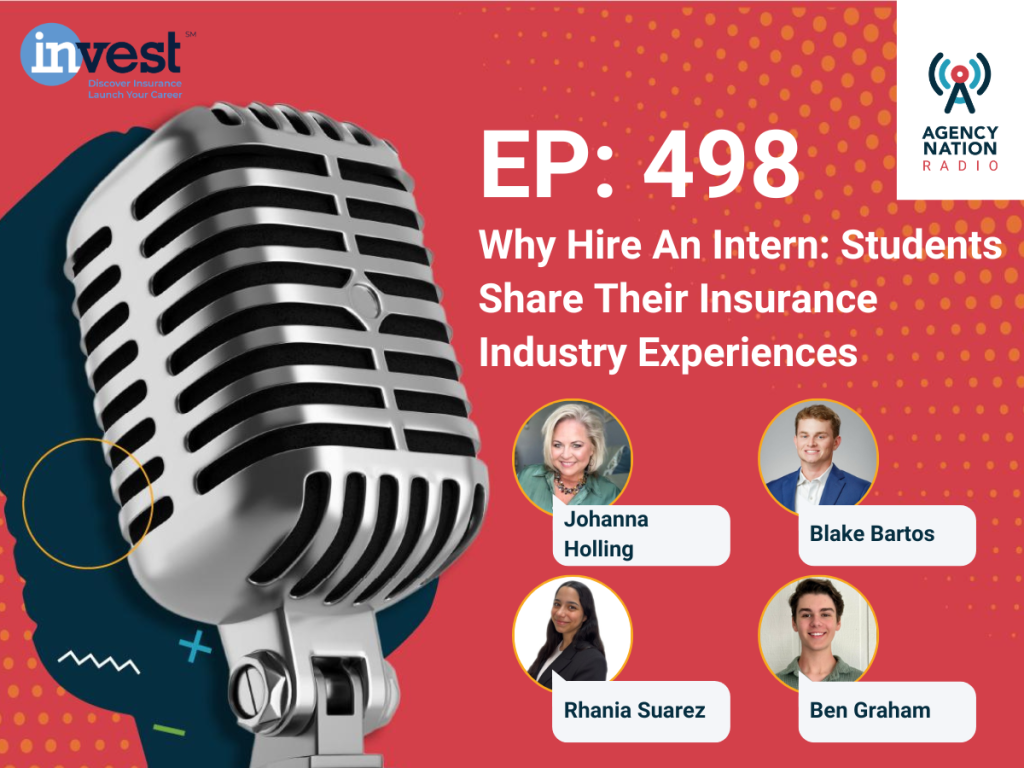Stress Fracture: Identifying and Preventing Burnout at Independent Agencies

In response to the hard market, the vast majority of agency frontline staff—87%—say their workload has increased in the last year, according to the “2025 Independent Agents at Work Study” from Agent for the Future by Liberty Mutual and Safeco.
Meanwhile, half say they feel overwhelmed by their current workload. Further, 65% of staff say they often feel stressed at work and 57% say they feel mentally and physically exhausted.
The result? As many as 51% go so far as to say they feel burned out.
Burnout is a serious claim, and its consequences on an agency can be far-reaching. Burnout is “a syndrome conceptualized as resulting from chronic workplace stress that has not been successfully managed,” according to the World Health Organization, the definition widely used by burnout researchers.
An important distinction is that burnout results from stressors that are chronic, says Christina Maslach, Ph.D., professor of psychology, emerita, at the University of California, Berkeley. Those stressors are “there all the time. It’s not an emergency or a tough month,” she says. “We know from literature going back decades and decades that acute stress—bound in time and space—is easier to cope with and easy to recover from. When it’s chronic, it’s tougher. Humans do not cope as well.”
Chronic stressors are like pebbles in your shoes, Maslach says. “It’s the everyday little stuff that is painful.”
Crucially, burnout is a workplace issue, not an individual issue, according to Bonita Eby, CEO of Breakthrough Personal & Professional Development, Inc. “Everyone goes to the self-care component, but it’s actually organizational culture—systems, processes, relationships—that cause unmanageable workplace stress,” she says.
more From the November Issue
For agents, some of the chronic stressors come from the industry itself. “We’re in a hard market, people aren’t making as much or having to work 12 hours a day just to get through their normal tasks,” says Brenden Corr, director of sales at Faura and co-founder of Project 55, a mental health nonprofit.
“Market uncertainties, political uncertainties, economic uncertainties—these are all vexing most industries in the U.S., and then there’s the hard market and the challenges around natural disasters and claims,” agrees Claudia St. John, president of The Workplace Advisors. “It impacts agents’ ability to provide offerings and secure coverage and means they have to have very challenging and stressful conversations with people, with the risk of losing that client to someone else.”

While burnout is limited to unmitigated workplace stress, agency leaders should also be aware of personal stressors that might reduce an employee’s ability to cope with work stress: childcare, eldercare, mental health struggles and other demands.
“There’s only so much capacity we have mentally, physically, emotionally, and when we’re already being taxed in those areas before we come to work, we’re not going to be great at work,” Eby says. “And when we’re being taxed in those areas at work, we’re not going to be great with our families and our communities.”
It’s a vicious loop, Corr says. “If you don’t feel supported in your work life—whether your employer doesn’t give you the right tools, it’s a chaotic environment or there’s stressful client relationships—you take that home and exhibit that stress to your partner or children, or maybe you don’t work out or you eat fast food, and then you sleep badly. Then you wake up feeling terrible and go back to work feeling the same way.”
Corr launched Project 55 in 2025 along with co-founder Justin Goodman, CEO of Total CSR, to offer resources for leaders and staff members alike to connect with each other in the workplace with empathy. “We’re trying to break that loop by giving people tools to identify when someone is struggling, but then also how colleagues and managers can help,” Corr says.
When stressors are unsuccessfully managed in the workplace, burnout shows up in three ways: exhaustion, cynicism and reduced professional efficacy. “People often think burnout is just being tired and exhausted, but that’s not burned out—that’s overextended,” Maslach says. “The solution for just exhaustion is different.”
Cynicism, also called depersonalization, is an indicator of deeper damage. “It’s a distancing of yourself from the job, it’s doing the bare minimum,” Maslach says. “That’s important because it changes how you do your job and how you treat your customers. You’re going to take shortcuts, you’re going to be less sensitive. You’re more likely to make mistakes and less likely to catch errors.”
The third component of burnout is when “you’re not just feeling negative about the job, but you begin to feel negative about yourself,” she continues. “‘What’s wrong with me?’ ‘Maybe I’m not cut out for this.’”
More on Agency Culture
When April Jordan joined Carolina Property Insurance in Murrells Inlet, South Carolina, as managing partner four years ago, she noticed those three signs in spades.
“We were a much smaller agency at the time and were just trying to keep the doors open and write the business that we could,” Jordan said, noting that few systems were in place to support staff’s work and staff had received little to no training. “Employees were short-tempered and unengaged, and it affected the service experience on the client end. There was a lot of frustration, a lot of stressors.”
“We basically had to do an overhaul,” she says.
The Consequences of Burnout
Burnout takes a toll on health, productivity and ultimately an agency’s bottom line.
“The stress response is not a pathology, but the important part is we’re not meant to be under stress all the time,” Maslach says. Without recovery, the body remains in a state of chronic stress, leading to serious physical and mental health outcomes, which “lead to heart attacks, cardiovascular problems, musculoskeletal problems, anxiety, depression,” she says.
Burnout can start small, Eby notes. “Early stages, you’re tired, you’re run down, you’re starting to get physically ill more often,” she said. “If you are not sleeping, you can’t focus, you can’t make decisions well, you can’t problem-solve well—all the kinds of things that an agent would need to do on a regular basis.”
Emotional symptoms follow: irritability, fear, anxiety, and feeling like the “emotional tank is just empty,” Eby says. “An agent needs to be caring. But when they’re on empty, that cynicism leads them to begin to put up a wall to self-protect because they can’t hear those difficult stories anymore.”
For agencies, these human consequences translate into business challenges. “One of them is increased costs associated with absenteeism,” St. John says, “but also productivity and inability to keep up with projects.”
Burnout can also impact retention, which is already a key issue for independent insurance agents. “If they’re burned out, there’s a higher likelihood for employees to want to leave their job to get relief,” says Crista Walker, vice president of agent engagement and programs, Liberty Mutual Insurance. According to Agent for the Future’s study, 39% of agency staff have considered leaving their job, and staff who report burnout are twice as likely to express interest in a new role.
And if team members start leaving, it could have a domino effect. “What does that do to the burnout of the rest of your staff?” Walker asks.

Given the consequences burnout can have on an agency, recognizing the signs is critical. Eby recommends evidence-based burnout assessments. Breakthrough offers a free, evidence-based burnout assessment.
She urges leaders to watch for behavioral changes: “Loss of passion, loss of engagement, productivity going down, procrastination,” she says.
Additional signs are “those moments of, ‘Hey, this person has started showing up differently than I’m used to,’” Corr notes. “Are they answering the phone with a happy voice? Are they frustrated with their agency owners?”
Jordan emphasizes that leaders must know their people well enough to spot subtle shifts. “You have to be present and you have to know your people,” she says. “Different people are affected differently by stress and by burnout.”
“We have pulse check-ins on a regular basis to ask about job satisfaction and issues,” Walker says. “A lot of agencies don’t do that as they don’t have hundreds of employees. But agency owners are connected to their people, and if you’re hearing from your staff that things are pretty stressful, it can be a symptom of a larger problem.”
If an agency leader notices burnout is becoming a problem in their agency, what should they do? “It tells you that you need to do organization-level intervention,” Walker says. “If you’re seeing symptoms across your frontline staff, now is the time to support them.”

The Inclusive Agency Training Series
Ultimately, Maslach says, agencies need to get beyond the question of “who is burning out?” and start asking “why are they burning out?” The shift in perspective “opens things up to look at the stressors—can we do anything about them? Can we make them less frequent or improve the recovery time afterward?” she says.
The reframe leads to another question, and it’s the crux of the solution, Maslach says: “What should we be doing to make things a little better around here?”
That one question can make a world of difference.
How Agencies Can Alleviate Burnout
The common approach to burnout is individualized, like exercising, taking up yoga or meditating. But employees cannot self-care their way out of systemic, chronic workplace stressors. “Not to say self-care isn’t helpful, but the missing piece has always been the chronic stressors that could be improved,” Maslach says.
More vacation time is not the solution either. “Come late, leave early, take a leave of absence or a mental health day off, that sort of thing,” she continues, “but at some level you have to ask, ‘What is it about the work that the best thing you can do is not do it?’”
It ultimately comes down to the pebble in the shoe. Leaders should be asking their frontline workers where the nagging, chronic issues are. “Where’s the drag? Can we redesign it? There are things that can be done easily without spending billions of dollars, simply by asking how we could do things a little bit better,” Maslach says.

“A lot of leaders feel like they have to come up with the solutions themselves,” St. John agrees. “But there’s an opportunity to sit down with employees and say, ‘these times are tough—what can we do to support each other?’ rather than write a prescription for something that you don’t know enough about.”
Organizations should also define the success of their efforts, Maslach says. “How will you know it’s a good change?” she asks. “It’s not ‘burnout will disappear.’ It’s ‘people will be able to spend more time with their customers,’ or ‘it’ll take this much less long to complete this type of file.’”
When organizations are in a mode of constantly asking what can be done to make things a little better, “we find the littlest things to improve, the low-hanging fruit, and it builds optimism and hope,” Maslach continues. “We get the pebble out of the shoe.”
Maslach co-authored the book “The Burnout Challenge: Managing People’s Relationships With Their Jobs” with Michael P. Leiter, in which they unpack six primary areas of mismatch between a job and a person that can lead to burnout. Not only are the six areas points of friction, “they’re also guideposts for where to look to make things better,” she says.

your one-stop shop for hiring Help
Here are the six main areas of mismatch and how agencies can alleviate the chronic workplace stressors that lead to burnout:
1) Workload. When Jordan began tackling burnout in her agency, she identified phone calls as a consistent stressor. “We didn’t want to compromise the level of service that we offered, but we wanted to spread that stress throughout our team members,” she says. “So, we have assigned phone days and we take turns. The phones are rotated so we all have breaks throughout the week.”
To facilitate this, the agency created a process where the phone system automatically pulls up the client file when the phone rings. Jordan also implemented procedures for every staff member to update client files consistently so anyone can jump in and provide stellar service.
Investment in digital tools, especially ones focused on customer communication, can help agencies address burnout at its root cause. Employees who work for agencies with more digital tools are less likely to say they are burned out, the Agent for the Future study found.
“Artificial intelligence (AI) can really help streamline processes, especially if you think of those repeatable things your customer service representatives (CSRs) are doing,” Walker says. “Many agents are telling us that the workloads just don’t slow down. You need to make tasks take less time.”
2) Control. Jordan gave employees more autonomy over their schedules. “For two hours every day, we have do-not-disturb hours when we set aside time for our producers when they don’t have to answer the phones and can regroup and concentrate on getting some tasks done,” she says.
Recognizing the importance of being able to recover from stress, Jordan also introduced a vacation buddy system: “When someone takes time off, their buddy checks emails, responds to calls and takes care of any time-sensitive items immediately,” she says. This prevents the stress of returning to a backlog and enforces a respect for every staff member’s personal boundaries.
“The more control you provide, the more people can flourish,” Eby says. “Do they have the ability to make decisions on how, when and where they work? Can they pick up their kids from school without feeling like they’re going to lose a promotion?”

Also, leaders must model how to claim autonomy, Eby adds. “Do not have a ‘do as I say, not as I do,’ expectation,” she says. “There’s nothing like a workplace saying you can clock out at 5 p.m., but your manager is bragging about taking calls at 8 p.m. That’s lip service. There’s no psychological safety.”
3) Reward. “We found in our research that reward is not simply pay and benefits,” Maslach says. “Often what’s missing is the social reward of recognition.”
Recognition was a pillar of the changes Jordan implemented at her agency. “Celebrations are important,” she says. “In staff meetings, we start with talking about something good—personal or professional.”
“Taking the staff to lunch, leaving a gift card on their desk, saying ‘Great job—thank you for doing this for the client,’ sending postcards to their home, it’s little things that matter,” she says.

Unlock insights to Take Your Agency to the Next Level
4) Community. As part of its burnout response, Carolina Property Insurance formed core values, one of which is collaborative success. “We have individual production, but we really focus on team success,” Jordan says. “We don’t talk about individual production in staff meetings. Celebrating what we do as a group is really important.”
This approach stems from her own experience with burnout in a previous role, which prompted her to leave the insurance industry for a time. “I was managed on, ‘If you don’t produce this, you may not have a job,’” Jordan recalls. “We don’t do things that way. We do things as a group and it helps you feel not isolated. And isolation leads to burnout.”
Individual check-ins are oriented around connection and compassion. “I do one-on-ones with my people, because it’s important to check in and see where they are, if they need help, if they feel isolated, if they’re not getting enough help,” Jordan says. “Those conversations help us see how we can adapt and improve efficiency to help each other.”

Community is modeled by leaders and managers—for better or for worse. That means it’s important to invest in leadership training. “Train them how to spot the signs of burnout, how to ask good questions, how to be approachable,” Eby says. “You can put all kinds of things in place, but if an employee is scared that they’re going to be put down if they have an issue, there’s no way they’re actually going to share.”
“The weakest link in every workplace that I have ever worked with are those frontline supervisors and managers,” St. John says. “Make sure that your leaders and supervisors are equipped to have the important conversations that they need to have.”
“We invested in leadership coaching,” Jordan says. “That was the first thing we did. I don’t think our agency would be where it is today if we had not invested the time and money in getting those skills.”
5) Fairness. “Whatever the rules and policies are, are they being fairly applied?” Maslach asks. “Are people who do good work not getting rewarded for it? Are rewards going to the boss’s best buddy?”
Consistency is key, and when fairness is called into question, it can create uncertainty. “Maybe managers have unrealistic sales goals or unrealistic expectations that you be checked in after work hours,” Corr says. “Nobody likes uncertainty. Most people like structure and knowing what needs to happen.”
Fairness also includes addressing toxic client relationships. “Sometimes employees are forced to maintain relationships with clients who are abusive, which means that the employee may feel like they’re not fully supported by their manager in that situation,” Corr adds. “That can absolutely lead to exhaustion, fatigue, frustrations—all of which are precursors to burnout.”
Exploring AI Podcast Series
6) Values. Renewing focus on the “why” behind the work can help staff reignite engagement. When people feel their work matters, they are more resilient, Eby says. After she and her husband were in a terrible car accident, her insurance broker was “fabulous,” she said. “That agent treated us like gold. We felt secure, we felt safe, we felt cared for. That agent should be able to go home and look at themselves in the mirror and say, ‘I made a difference today.’”
Another way to emphasize value is volunteering. “When an agency volunteers together, those folks feel less burnout,” Walker says. “They’re doing meaningful things in their community, and they feel good about working for the agency.”
Ninety-one percent of U.S. office professionals said workplace volunteer opportunities can have a positive impact on their overall work experience and connection to their employer, according to a 2024 study by Deloitte. In fact, 87% said volunteering is a factor in their decision to stay or leave.
Today, Jordan’s agency feels completely different than when she first walked in the door four years ago. “I’ve seen relationships develop and I’ve seen the culture and vibe of the agency totally transform,” she says. “We’ve been able to do a better job of offering higher levels of customer service. We get more Google reviews than ever before. We’re retaining customers and writing new ones.”
“Sometimes you have to slow down to speed up,” she adds. “People have to know that they’re cared about and valued.”
AnneMarie McPherson Spears is IA news editor.

















